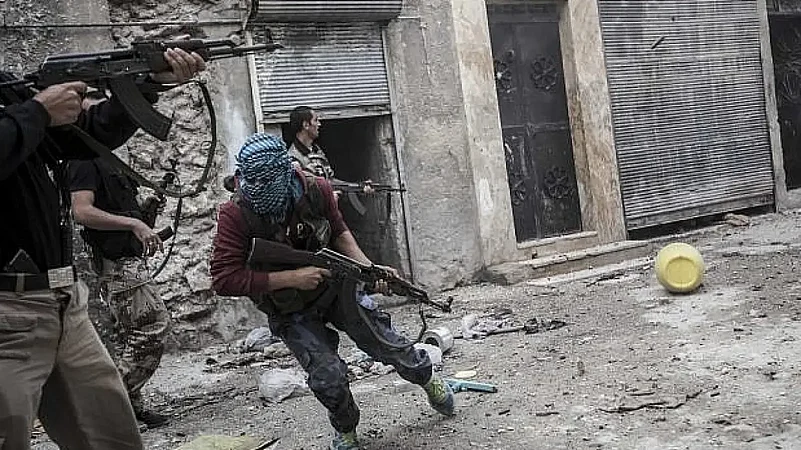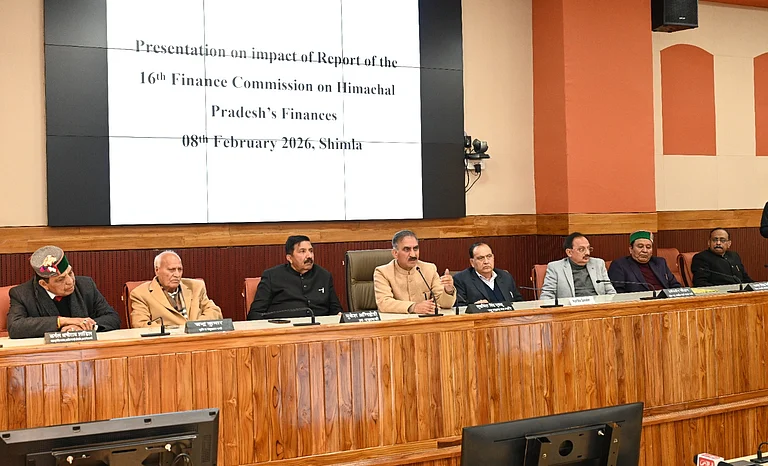Supporters of a one-year extension of humanitarian aid deliveries from Turkey to 4.1 million Syrians in the rebel-held northwest, which Russia vetoed, are now calling for a Security Council vote on Moscow's proposal for a six-month extension.
Ireland and Norway, who sponsored the yearlong extension that Russia vetoed last Friday, circulated a new draft resolution on Monday for a six-month extension of deliveries through the Bab al-Hawa crossing until Jan. 10, 2023, with a new resolution required for a further six-month extension until July 10.
The draft, which diplomats said could be voted on possibly Monday evening, is almost identical to the Russian draft resolution that failed to get council support last Friday.
At the heart of the apparent backdown by supporters of a year-long extension is Russia's adamant refusal to consider any timetable beyond six months, and the fact that the Security Council's last mandate, for a year, ended Sunday.
In Friday's votes, the Ireland-Norway draft resolution for a one-year extension was supported by 13 countries, with China abstaining and Russia using its veto to defeat the measure.
Council members then voted on the rival Russian resolution for a six-month extension which got only 2 “yes” votes, with China the only country to join its ally Russia in supporting the resolution. The three other veto-wielding permanent council members — the United States, Britain and France — voted against it and 10 countries abstained. The vetoes were not needed, however, because the resolution failed to get the minimum nine “yes” votes required for approval.
U.S. ambassador Linda Thomas-Greenfield warned after Friday's votes that “I have long said this is a life-and-death issue” and “people will die because of this vote.”
Thomas-Greenfield, who visited Bab al-Hawa in June, said aid workers told her that a six-month renewal would be “a disaster” for their supply lines. They told her it “would mean lifesaving assistance would shut off in the dead of winter when needs are at their highest, which would be a nightmare scenario for a region where millions of people are still displaced.”
But Russia's deputy ambassador Dmitry Polyansky told reporters there was “99% agreement” on a resolution and said Russia wouldn't support a nine-month extension, suggested as a compromise by Brazil and the United Arab Emirates.
Unless council members decide to go with the Russian six-month proposal, Polyansky said, he saw no possibility for an agreement. Asked whether that meant that Russia would veto any proposed resolution that didn't follow its draft with a six-month timeline, he replied: “Obviously.”
That left the rest of the council with no alternative but a six-month extension if they want to see the continuation of cross-border deliveries that Secretary-General Antonio Guterres and more than 30 non-governmental organizations also consider crucial.
Northwest Idlib is the last rebel-held bastion in Syria and a region where an al-Qaida-linked militant group, Hayat Tahrir al-Sham, is the strongest. The U.N. said recently that the first 10 years of the Syrian conflict, which started in 2011, killed more than 300,000 civilians, the highest official estimate of civilian casualties.
Russia, a close ally of Syria's government, has repeatedly called for stepped up humanitarian aid deliveries to the northwest from within Syria, across conflict lines. This would give Syrian President Bashar Assad's government more control.
In early July 2020, China and Russia vetoed a U.N. resolution that would have maintained two border crossing points from Turkey for humanitarian aid to Idlib. Days later, the council authorized the delivery of aid through just one of those crossings, Bab al-Hawa.
In a compromise with Russia, that one-year mandate was extended on July 9, 2021, for six months, with an additional six months subject to a “substantive report” from U.N. Secretary-General Antonio Guterres. This was effectively a year-long mandate because a second resolution wasn't needed.
Before last week's vote, U.N. spokesman Stephane Dujarric called cross-border aid critical for men, women and children in the northwest and stressed the importance of long-term planning, including costs, in supporting a year-long extension.





















